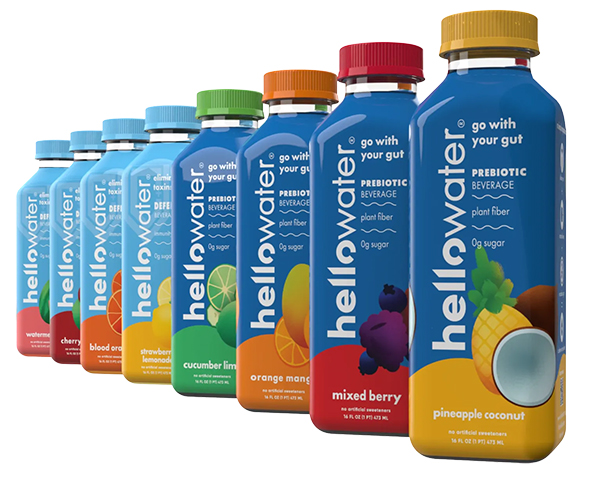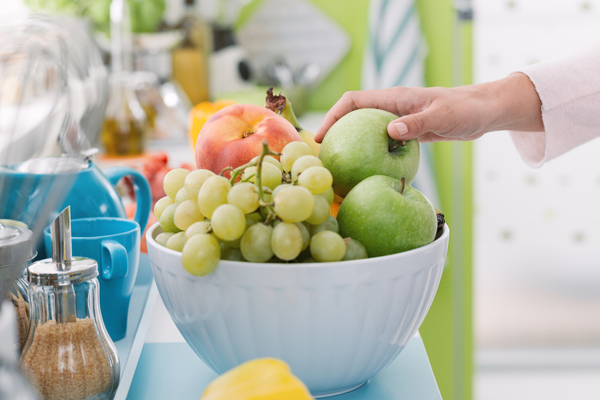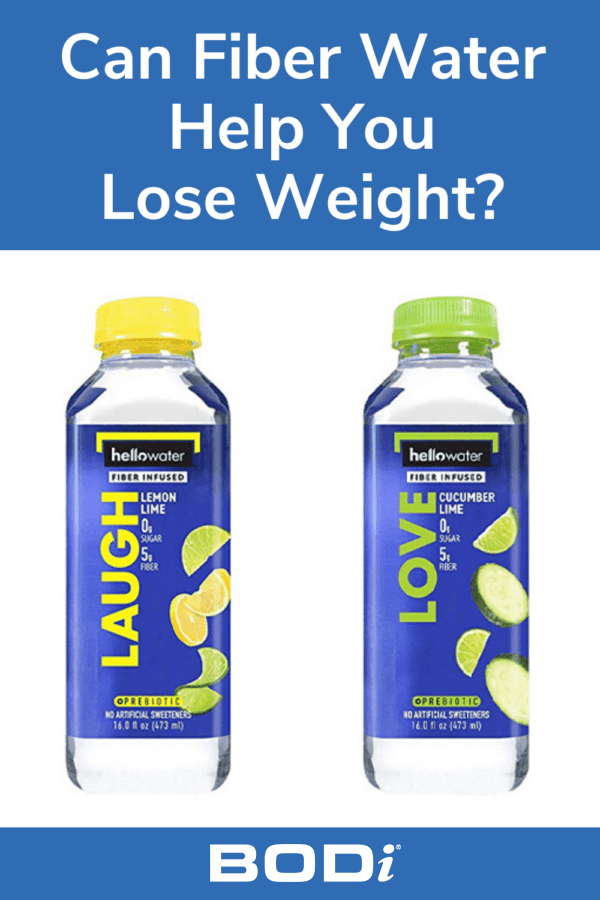Can Fiber Water Help You Lose Weight?

By now, most of us know that fiber — like sleep and water — is something we could use more of. It’s been billed a wonder worker for everything from healthy digestion to weight loss.
The USDA Dietary Guidelines recommend that women consume at least 22 to 28 grams of fiber per day, and men eat at least 28 to 34 grams of fiber per day, depending on age. But the average American only gets around 16 grams of fiber per day, according to the USDA.
Can fiber water — a relative newcomer to the ever-growing wellness water market — help to close that gap? Here’s what you need to know.
Can Fiber Water Help You Lose Weight?

In studies, high-fiber diets have been shown to help with weight loss and weight maintenance. Dietary fiber can help you feel satiated, which may help to curb overeating.
From fiber water to fiber supplements, people are looking for easy ways to incorporate this essential nutrient into their lifestyles.
“There are 175,000 people per week searching for some type of fiber on Amazon,” says Rusty Jones, co-founder of the fiber-infused beverage company Hellowater.
Jones and co-founder Tom Bushkie, a certified nutritionist, developed Hellowater to meet what they saw as a white space in the beverage market.
“We went to a food scientist with the idea of creating a high-fiber water in a ready-to-drink format that could act as an appetite suppressant,” says Jones.
Jones says his larger goal in developing fiber water was to help individuals manage their weight and promote healthy blood sugar levels.
“Fiber is a nutrient that aids with digestion and helps manage healthy cholesterol and blood sugar levels, which is why we need it,” Jones explains.
What Exactly Is in Fiber Water?
There are two main types of dietary fiber:
- Soluble fiber helps you feel full longer, aids in managing healthy cholesterol levels, and helps maintain healthy blood sugar levels.
- Insoluble fiber is mostly responsible for adding bulk to your stool and keeping you regular.
Your body needs both types of fiber to aid in proper digestion.
Fiber water is infused with soluble fiber, along with natural flavors and sweeteners. But is fiber water just a millennial spin on your grandma’s fiber powder? Not exactly.
Unlike traditional fiber supplements you mix into water, fiber water is clear, not gritty, and only contains soluble fiber.
According to the label, a bottle of Hellowater Prebiotic Beverage delivers 5 grams of fiber — specifically, inulin derived from chicory root — per serving. That’s around 20 percent of the recommended daily value of fiber based on 2,000-calorie diet.
All in all, the composition is roughly 98 percent water and 2 percent inulin, according to Jones.
Is Fiber Water Good For You?

If most of us could use more water and more fiber in our lives, then putting them together in a fiber drink seems like the ultimate win-win.
“People are trying to find other ways to get their fiber in,” says Kristi King, MPH, RDN, LD, CNSC. “Fiber water could be one way of doing that, which isn’t necessarily a bad thing. But it shouldn’t be your primary source of fiber.”
To put it into perspective, a bottle of Hellowater has about the same amount of fiber as an apple. However, when you eat an apple with its peel, you’re getting soluble and insoluble fiber, as well as important antioxidants like vitamin C and minerals like potassium, King explains.
Certain fiber supplements also provide both soluble and insoluble fiber. Shakeology Digestive Health Boost supplies 7 grams of dietary fiber, including insoluble fiber from chia and flaxseed and soluble fiber from psyllium husk.
Should You Have Fiber and Water Together?
That said, drinking water with any high-fiber diet is important. “Even if you’re eating a cup of carrots, it’s important to have adequate fluids over the course of the day,” says King. “Fluids help move things through the system. If you’re eating a high-fiber diet, not staying hydrated could cause discomfort in the GI system or gassiness.”
She also cautions that when you increase the amount of fiber you consume, it’s important to do so incrementally.
Downing several bottles of fiber water or an entire bag of mini carrots to double your fiber intake overnight could pose a shock to your system — and any coworkers sitting nearby.

